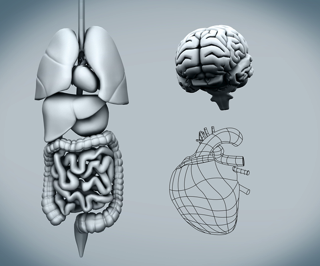Leaky gut raises heart disease risk with Hashimoto’s

Many people think the main keys to avoiding arterial plaque and heart disease are to watch cholesterol, avoid smoking, and exercise. But what is less known is how dependent your heart health is on your gut. If you have digestive problems, multiple food sensitivities, or chronic inflammation, these could be signs your gut health is putting your heart health at risk. We already know poor gut health is linked with autoimmune diseases such as Hashimoto’s hypothyroidism. Failing to manage these factors can put your heart at risk too.
If you have digestive problems, chronic pain or inflammation, multiple food sensitivities, or an autoimmune condition you aren’t managing, chances are you have a leaky gut. Leaky gut is often a foundation to autoimmune diseases such as Hashimoto’s.
Leaky gut is also referred to as intestinal permeability. It means the lining of the small intestine has become inflamed, damaged, and overly porous. This allows undigested foods, bacteria, molds, and other antigens to enter into the bloodstream. Because these compounds don’t belong in the sterile environment of the bloodstream, the immune system views them as toxic and attacks them, causing inflammation. This chronic inflammation plays a role in many health conditions such as Hashimoto’s hypothyroidism, but can also play a role in artery blockages and heart disease.
Inflammation from leaky gut clogs arteries
Inflammation from leaky gut can be a primary factor in causing arterial plaque and blockages. In fact, patients with heart disease show higher incidences of leaky gut compared to those who don’t have heart disease. Likewise, patients with autoimmune diseases such as Hashimoto’s hypothyroidism also show a higher incidence of leaky gut.
Inflammation creates lesions on arterial walls. The body “bandages” them up with cholesterol, which becomes plaque. This process is known as atherosclerosis
Inflammation not only promotes plaque in the arteries, it also weakens the stability of this plaque. Plaque stability is important to prevent heart attacks. Rupturing of plaque causes it come loose and block the artery, starving the heart of blood and leading to a heart attack.
Leaky gut is recognized as a primary factor in causing chronic inflammation that not only can clog your arteries, but also inflame your joints, cause skin issues, inflame your brain with symptoms of brain fog, depression, or memory loss, or trigger autoimmunity such as Hashimoto’s hypothyroidism. Inflammation affects each of us differently depending on our genetics and environment.
Pathogens from leaky gut damage arteries
Leaky gut also promotes arterial plaque and heart disease in another way — by allowing infectious bacteria and other pathogens into the bloodstream.
Our guts are home to several pounds of a diverse array of gut bacteria. New research shows how vital these gut bacteria, called the microbiome, are to all facets of our health. The microbiome produces vital nutrients, activates anti-inflammatory plant compounds, regulates metabolism and immune function, and influences brain health and function.
Unfortunately, Americans have by far the unhealthiest microbiomes of the populations studied. Many Americans not only lack diversity in their healthy gut bacteria, but they also have too much bad, inflammatory bacteria in their guts. This in part explains the exploding rates of autoimmune disease today, including Hashimoto’s hypothyroidism.
Gut bacteria have also been linked to obesity, triglyceride levels, and cholesterol levels. People with healthy blood lipid levels also showed more diversity of gut bacteria.
Many people develop leaky gut in part because of poor stomach health and infection from h. pylori, the bacteria that causes stomach ulcers. H. pylori has been linked with irregular heart rhythms (atrial fibrillation), which increases the risk of heart failure.
Don’t let your gut sabotage your heart. Ask my office how we can help you shore up the health of both with proven functional medicine strategies.